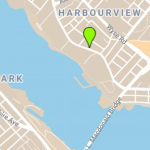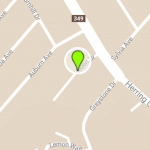Press release text:
With the help of the Justice Centre for Constitutional Freedoms (www.jccf.ca), Nova Scotia senior citizen Lorne Grabher will appeal the decision of the Nova Scotia Supreme Court, which upheld the censorship of his family surname on a personalized “GRABHER” licence plate. Mr. Grabher and his family used the plate on their vehicle for nearly three decades without incident, until a lone anonymous person complained about it to the Department of Motor Vehicles in 2016.
Justice Darlene Jamieson ruled on January 31, 2020, that the plate’s permanent cancellation was reasonable, because Mr. Grabher’s surname could be “misinterpreted” as a “socially unacceptable slogan” and interpreted as promoting sexualized violence. There is no evidence whatsoever that anyone has ever committed a sexual assault because they saw Mr. Grabher’s name on his license plate.
The plate is an expression of the Grabher’s family pride over three generations, reflecting their German-Austrian roots and heritage. Mr. Grabher’s family immigrated to Canada from Europe in 1906. His father served in the Canadian Armed Forces, and was stationed in Cape Breton, Nova Scotia. The family’s history, including their name and the heritage it signifies, is important to the Grabher family.
Around 1990, the Grabher family first applied for the “GRABHER” plate, originally a gift to Lorne’s father and later used by Lorne’s son. For 27 consecutive years, through three generations of Grabhers, the Registrar authorized the plate for use on the family’s motor vehicles in Nova Scotia. Each year the Registrar of Motor Vehicles renewed the plate without issue. In fact, the Nova Scotia Personalized Plate Program was created so that citizens like Mr. Grabher can have personal expression on their licence plates. The first personalized plate ever issued in Nova Scotia was someone’s name: “ARLENE”.
In response to a lone complaint the Plate was cancelled in December of 2016. The Justice Centre contacted the Registrar of Motor Vehicles demanding the plate be reinstated, noting the decision was “discriminatory” and “unreasonable”, and a violation of free expression as guaranteed by the Canadian Charter of Rights and Freedoms. The Registrar refused to reactivate Mr. Grabher’s personalized plate.
In May 2017, the Justice Centre first launched a court action against the Nova Scotia on behalf of Mr. Grabher and a lengthy hearing took place in April 2019.
For Lorne Grabher, this case and the latest ruling denying him his license plate, is about his family’s name, personal dignity, and the ongoing insult by the Nova Scotia government in its censorship of the plate, as if his surname is not acceptable. He is appealing a ruling that effectively equated his last name with EATASS, FOQME, HOTCOK, BLOWJB, BRDSHT, FSTFK, FCKPIG, 8CUNT, DCHBAG, GNGBNG, FQUALL and other objectionable terms on the Banned List of words that are prohibited by the Nova Scotia Registrar of Motor Vehicles.
The court was not moved by the double standard of foul language used by another government entity, the Halifax Water Board, whose bus ads included the phrases “Powerful Sh*t” and “Be proud of your Dingle.” The court also decided it was irrelevant that Canada has actual places like “Dildo, Newfoundland,” “Swastika, Ontario,” “Red Indian Lake, Newfoundland,” “Crotch Lake, Ontario,” “Old Squaw Islands, Nunavut,” and “Cape Negro” in Nova Scotia.
Justice Jamieson relied heavily on a report by Professor Carrie Rentschler, a McGill University professor of “feminist media studies” who specializes in things like “the construction of new political subjectivities,” “emergent forms of social collectivity,” and “the shape and practice of contemporary feminisms in social media networks and hashtag publics.”
Professor Rentschler suggested that the “GRABHER” licence plate supports or increases violence against women; that exposure to cultural slogans normalizes sexual violence against women; that Mr. Grabher’s plate creates an elevated risk of rape; and that Mr. Grabher’s surname is a statement in support of physical violence against women. During cross examination at trial, Professor Rentschler testified that the neighborhood would be safer if Mr. Grabher put his car in the garage at night than if he left it on the driveway with the plate showing.
Mr. Grabher contends that his last name is not a slogan. A recent ruling out of Manitoba found that personalized licence plates are a form of free expression protected by the Charter, but Justice Jamieson disagreed.
“The provincial government cannot sanction having vehicles with government-owned plates travelling the highways of this province and country bearing messages that could be considered ‘offensive or not in good taste.’”
“Unsurprisingly, there was no evidence before the court that there is less crime in Nova Scotia, or in Mr. Grabher’s neighborhood, since the plate was revoked”, notes Justice Centre Litigation Manager, Jay Cameron, who represents Mr. Grabher.
“There was no evidence that anyone, including the anonymous complainant, had suffered any harm as a result of the plate. There is no evidence that censoring Mr. Grabher’s name after 27 years of use on a license plate makes anyone safer. We do know, however, that the arbitrary and fickle use of state power makes society less safe, and less free.”



